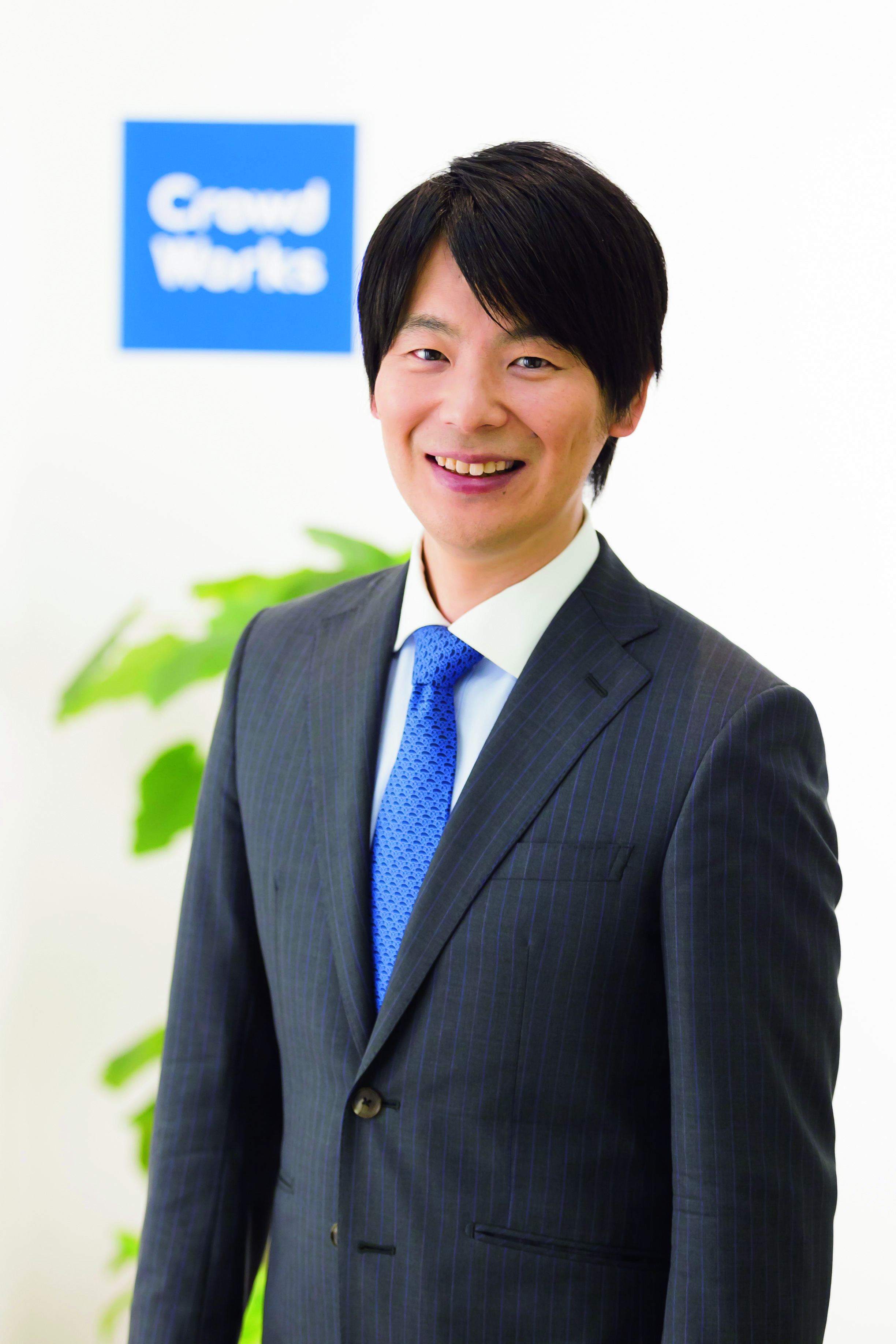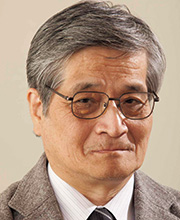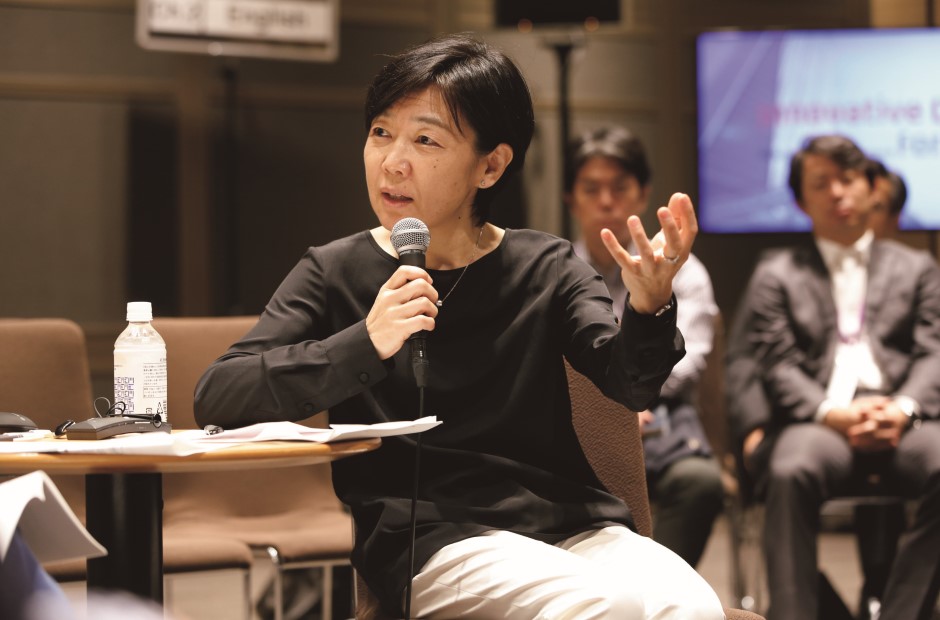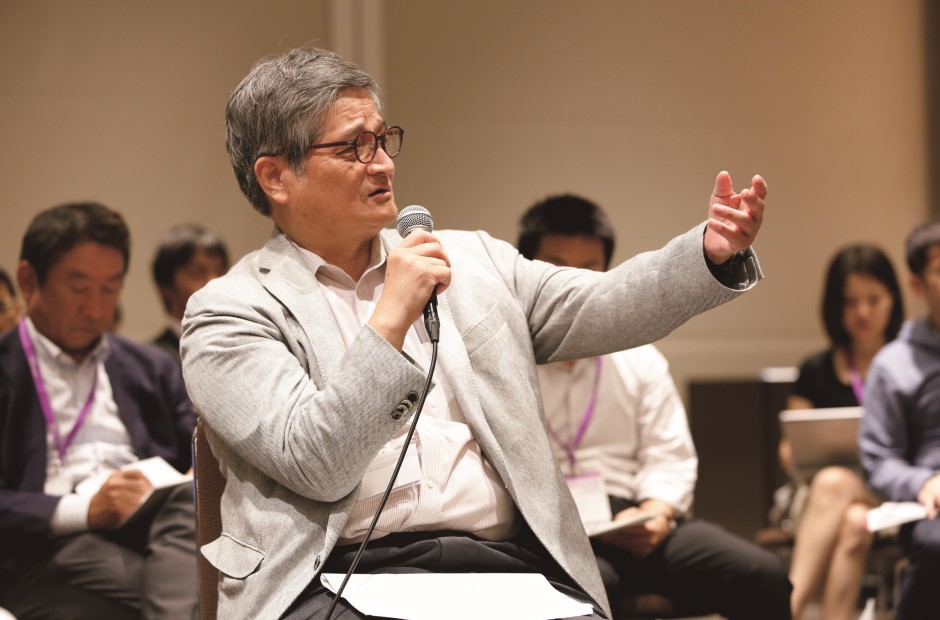Future Work




Director, Research Institute of Information Technology and Management, Waseda University
Future Work
Why, where and how will people work? -Designing a style of work interconnected with technology-
The past 20 years and 20 years from now
Okoshi
Before we start to consider the future of work 20 years from now, I would like to hear your thoughts on the changes we have seen over the last 20 years from a work perspective.
Negoro
While the changes vary depending on occupation, university professors have seen almost no change. On the other hand, we have seen a great deal of change in how creators do their job, including efficiency and quality of output. From a holistic point of view, a tremendous amount of work is now performed on computers and any job that involves administration is really akin to computer work. What hasn’t changed is the rush-hour commute; Tokyo’s rush hours have hardly been alleviated over the past 20 years.
Replacement of labor by Artificial Intelligence (AI) and robots
Okoshi
What kind of impact do you think artificial intelligence (AI) and robots will have on the labor market?
Negoro
AI and robots will significantly affect how we work, while the replacement of office work with AI will steadily progress. If the returns on investment in robots measure up, the automation of simple labor will advance even further. Overall, the amount of time humans spend actually working will gradually decrease.
Yoshida
The industrial revolution brought about significant changes for blue-collar workers with the advent of machinery. The future will see great changes for white-collar workers due to the rise of AI. We’ve had eras of “blue-collar,” “machinery,” and “white-collar, ” and we will soon have something like the era of “new collar/color created by AI.” The current day business of crowdsourcing is just one aspect of this trend. A lot of changes are taking place in society with regard to how we work.
Minami
Earning a living on the asymmetric nature of information will no longer be possible. The value of knowing something will gradually diminish and the idea of being able to provide answers will be completely replaced by technology. Only what cannot be answered or replaced with technology will remain.

How to work with crowdworking/crowdsourcing
Okoshi
Tell me about how crowdworking and crowdsourcing works.
Yoshida
Crowdworking is a service that lets people work freely with no time or location constraints and provides people from all walks of life with new working opportunities.
Minami
Rather than starting out as a company that lets people work free of the shackles of time and place, my company Coconala began as a service that allowed people to provide their experience and skills to others on a one-to-one basis. This gave people the chance to discover the joy of living simply through being thanked for a job well done.
Okoshi
The labor market is currently made up of regular and non- regular workers, but most companies are happy to employ non-regular workers if they are good enough at their jobs. However, from a longer-term perspective, these employee classifications will probably disappear. A more radical view would be that all employees become non-regular employees. In other words, most people, including those working at corporations, would shift to a flexible working hour system. If this eventually becomes widespread, individuals will work wherever and whenever they want to.
Yoshida
There are both positive and negative implications for our company services when debating the issue of non-regular workers. Data from 2015 shows that the percentage of full-time employees is under 50%, which has positive implications for my company as the other 50% is our target audience. However, we have also received criticism for accelerating the rate of increase in temporary workers.
Corporate significance and “scarcity”
Audience
Some people believe that if individuals get really good at what they do, then companies will ultimately disappear and everyone will be working for a minimum wage. What are your thoughts on this?
Negoro
Organizations exist thanks to transaction costs. In the future, because transaction costs between workers and companies will decrease, labor will be sourced from individuals, but even so, companies will still remain. A company is needed as a framework to organize people. They are also required in order to manage capital. Capital is needed to build a new plant, or develop new technology. Companies hold large amounts of capital and as long as the scarcity of that capital remains companies will continue to exist. In addition, not everybody’s wage levels will approach the minimum wage. Wages will be determined by scarcity and transaction costs. Creative human resources will command high levels of pay due to their scarcity. In other words, once a portion of the creative market starts to expand, the value of workers that offer such scarce labor services will increase. Scarce labor will always attract a price, which is why not everybody will work for a minimum wage.
An age of individual empowerment”
Minami
Due to the fact that advancements in technology now allow more of us to work in different ways, I think in the future we will see people becoming gradually empowered as individuals. Up until now the government has created a system where corporations look after their employees, but it will be difficult to keep maintaining the social security system as it is now. Furthermore, in a future society where people are living longer and forced to work until the age of maybe 80 or 90, corporations will no longer be able to continue supporting such employees. The idea of individuals becoming empowered probably carries a wonderful image of freedom, but behind that freedom there are always responsibilities. The future will revolve around the individual.
Okoshi
Could you describe an empowered individual to us?
Minami
Ultimately, empowered individuals will have the option of choosing how they want to work in society and be able to successfully generate value. Instead of working simply to earn money, they will do something that is rewarding and which expresses their individuality as well as because they are wanted by society. I think individual empowerment will mean being able to work willingly rather than working hard and persistently.
Yoshida
People’s values are changing from the idea of having monetary riches to being rich in empathy. Up until now, being monetarily wealthy was something to be envious of, but I think having a wealth of empathy and attracting empathy from others will soon be seen as something to be envious of. I think this will represent what it means to be empowered.

Envisioning the future
Okoshi
Japanese people are not very good at depicting dreams and as a result I think our country just addresses problems instead.
Negoro
I agree with you that we should be depicting our future, but designing the future is the same thing as designing uncertainty and opinions are always divided. On top of that, vested interests are always split. Democracy does not always meld with long-term considerations on design and the more democratic our country is, the harder it is to draw up designs. For this reason, government should not be involved in the design process. What they should be doing is, from a labor perspective, abolishing limitations and laws that obstruct initiatives like crowdsourcing. While this may only be part of the solution, it will bring benefits in the long run.
Okoshi
The current social security system, that was created on the premise that almost all young university graduates will take up employment at a company, will have to be replaced with a grand design for society once the so-called non-regular workers account for the majority of labor and companies take on entirely different roles. While probably not everyone will become freelancers in the future, we should begin discussions on structures and frameworks on the assumption that the percentage of those engaged in such a working lifestyle will increase.